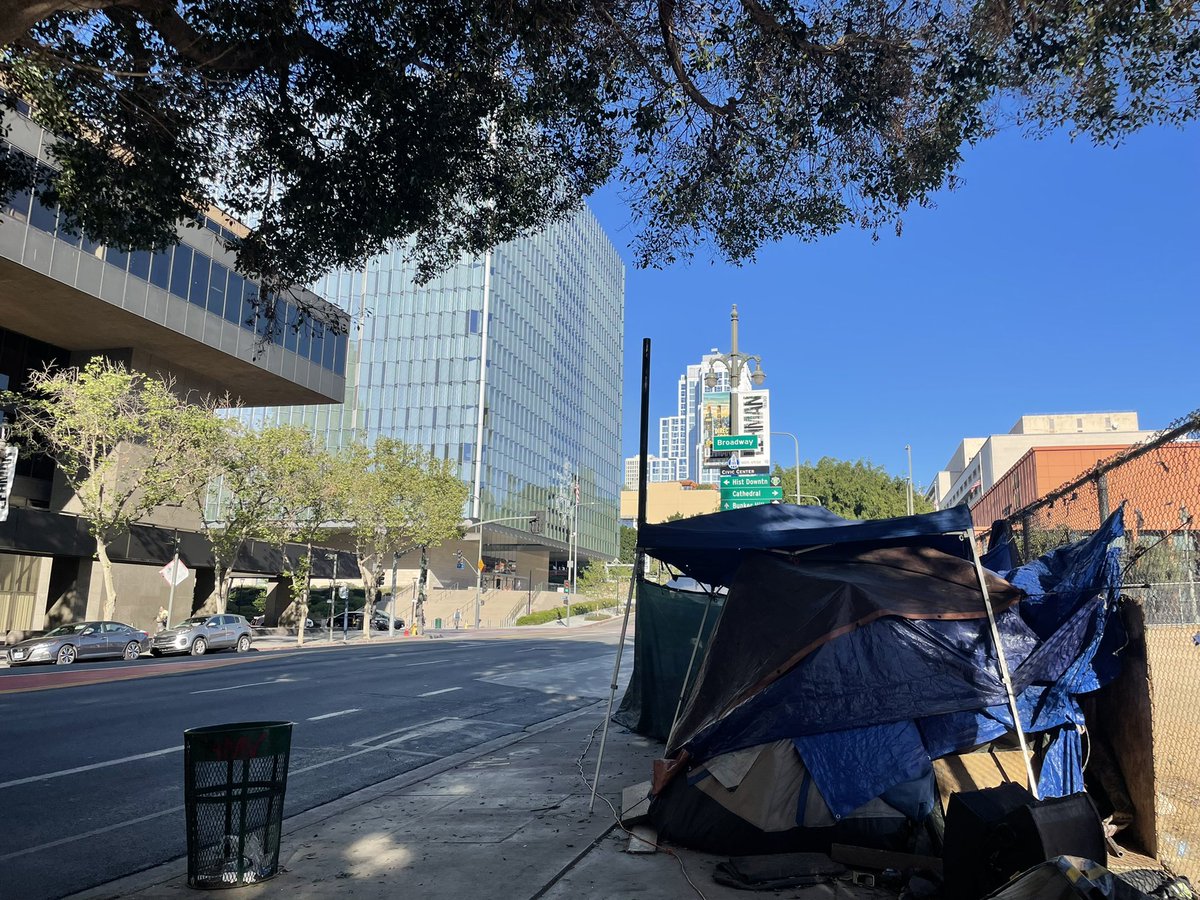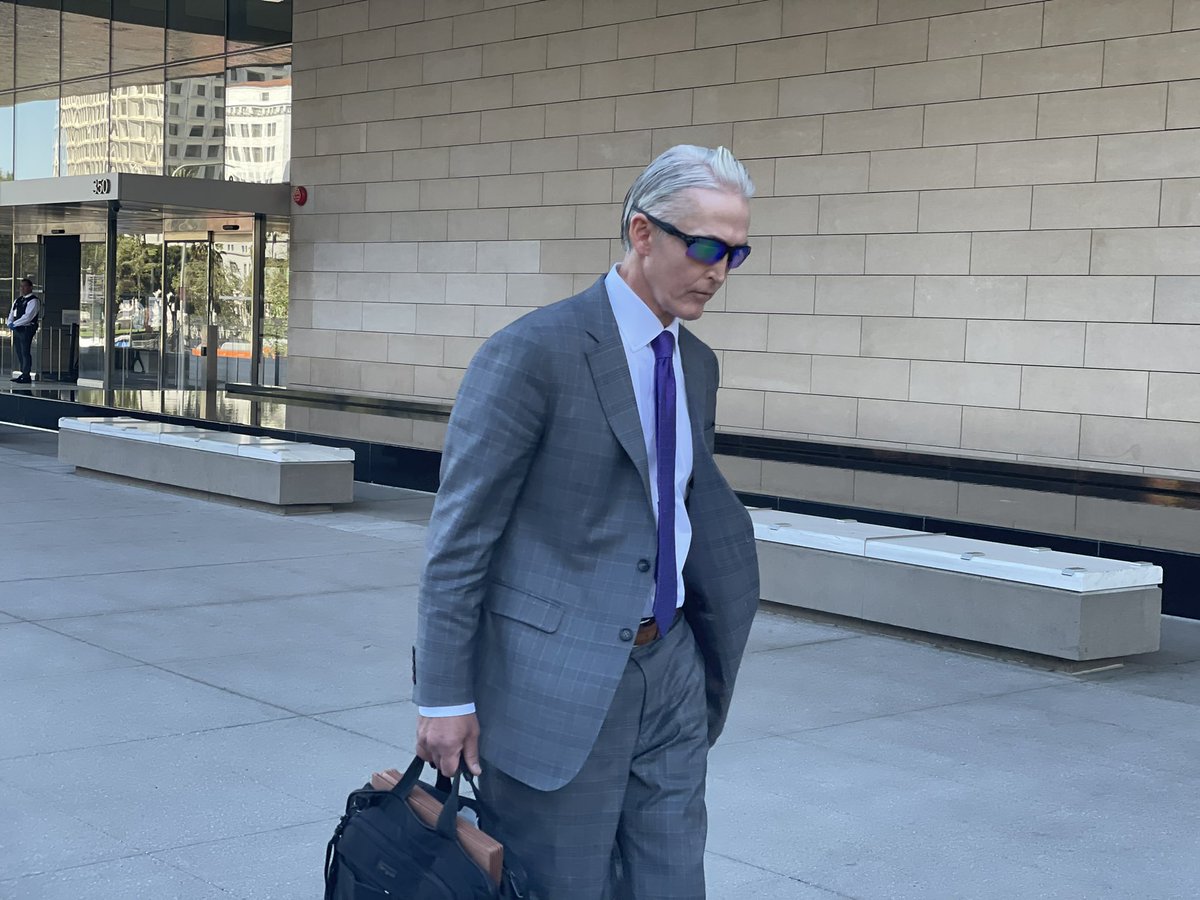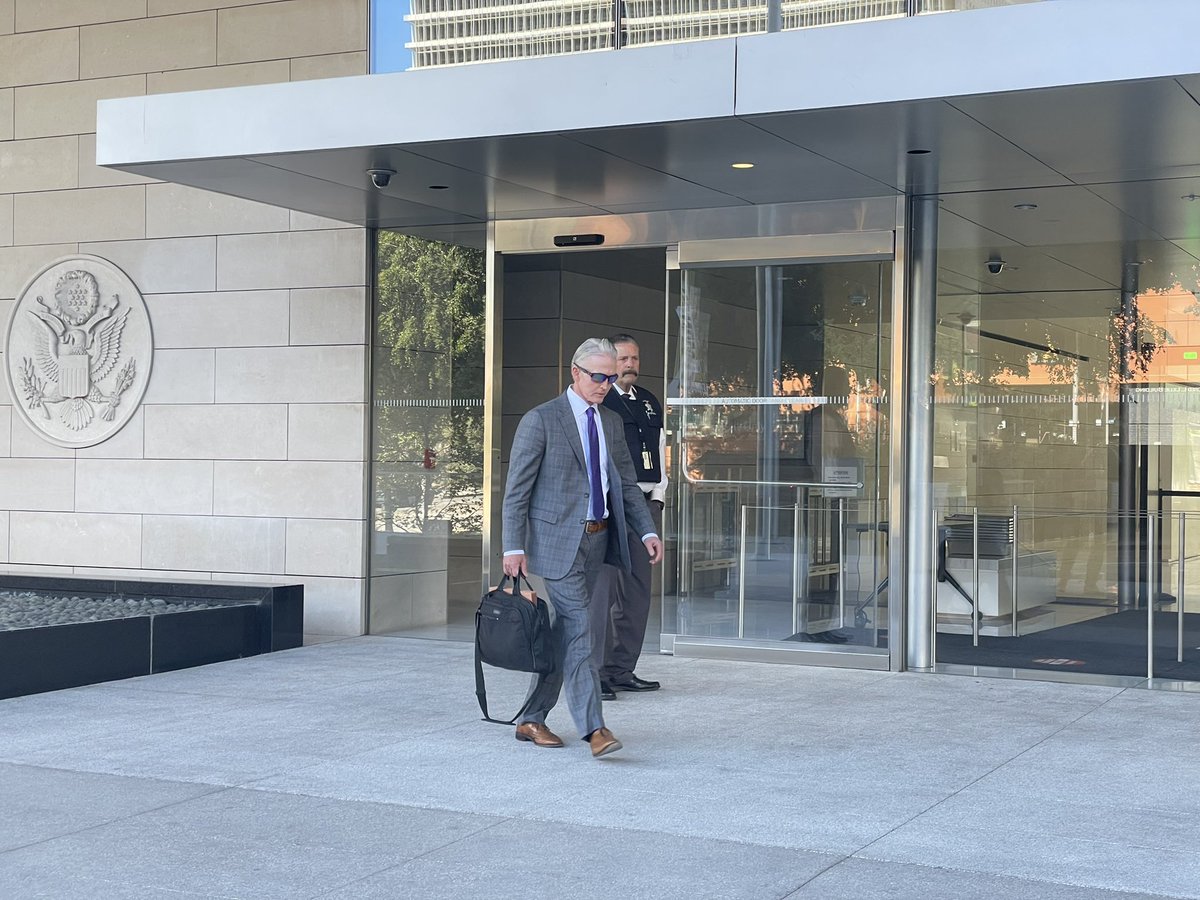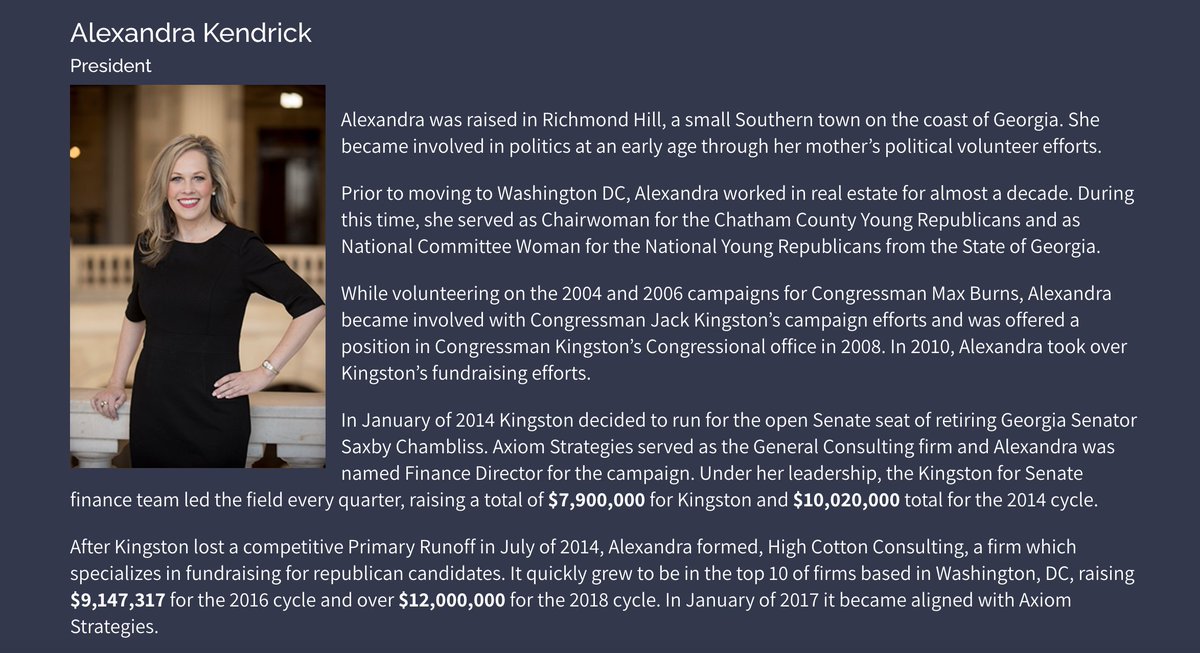
I’m here at the Los Angeles federal courthouse (background not foreground) for U.S. Rep. @JeffFortenberry’s criminal trial, and it appears former South Carolina U.S. Rep. Trey Gowdy will be testifying today as a defense witness. I saw him in the hallway a minute ago. 

As this trial brief from prosecutors explains, Gowdy was Fortenberry’s lawyer during his second voluntary interview with @FBI in 2018, in which Fortenberry is accused of lying to federal agents. bit.ly/3IxFtfF
.@USAO_LosAngeles prosecutors rested their case about 20 minutes ago, and Judge Blumenfeld denied the defense’s motion to dismiss the indictment under Rule 29 (that’s a defense standard request after prosecutors rest). Defense case will start soon. bit.ly/3HhPRIu 

The first defense witness today for Fortenberry was not Gowdy but another U.S. representative: Democrat @RepAnnaEshoo from “very distinguished” District 18 in northern California. It's like having a cool aunt on the witness stand filling you in on what Congress is really like.
Fortenberry's letter to the House that he can't vote in person because of a public health emergency, reported last week by @NE_Examiner, was discussed in court this morning because prosecutors want to use it if Fortenberry testifies. bit.ly/3KSnFgI
Prosecutors want to bring up letter in cross of Fortenberry (we don't yet know for sure if he's actually going to testify), because they say it's probative of his character for truthfulness. But Judge Blumenfeld decided not to allow it after hearing from Fortenberry's lawyers.
Fortenberry’s lawyer Littrell told Blumenfeld letter is a standard form letter not anything Fortenberry drafted on his own. Judge said letter “would require much more explanation for the jury to reasonably determine whether it bears on the defendant’s character for truthfulness.”
Trey Gowdy was testifying when the court took a break (back in five minutes). He’s a former U.S. representative from South Carolina, but before he was up, as I said earlier, jurors got to hear from a sitting member of the House, Rep. Anna Eshoo of California.
Eshoo’s testimony started off with a glaring reminder of a longtime pet peeve: When people act like Congress is only the House, instead of the House *and* the Senate.
“What is the difference between the Congress and the Senate?” AUSA Mack Jenkins asked. (Maddening.)
“What is the difference between the Congress and the Senate?” AUSA Mack Jenkins asked. (Maddening.)
"Well, the Constitution spells out the difference in the bodies," Eshoo answered. "The House is the only place where no one can ever be appointed. ... So we really are the fullness of the word 'representative.'"
Eshoo’s district has 750,000 residents, with @Stanford its geographic center.
“It’s known as Silicon Valley,” she said.
Eshoo has been in office since 1992.
“It was known as the year of the woman. I guess they only meant that for that time, but we changed that,” Eshoo said.
“It’s known as Silicon Valley,” she said.
Eshoo has been in office since 1992.
“It was known as the year of the woman. I guess they only meant that for that time, but we changed that,” Eshoo said.
Eshoo was the first Armenian congresswoman. She currently serves on the House Committee on Energy and Commerce, and she served 10 years on the House Intelligence Committee. Littrell was asking her how she meets other members, leading to her meeting Fortenberry.
“The House is kind of a rough and tumble place,” Eshoo said. Members often speak to each other when votes are taking place.
“What is voting about?” Littrell asked.
“Oh, my goodness,” Eshoo began.
“What is voting about?” Littrell asked.
“Oh, my goodness,” Eshoo began.
Eshoo told jurors she votes on “some of the most consequential” issues in American history and described a few.
“Anything else?” Jenkins asked.
“Oh my goodness, yes,” Eshoo answered, mentioning the federal budget “that funds this building. This is a federal building.”
“Anything else?” Jenkins asked.
“Oh my goodness, yes,” Eshoo answered, mentioning the federal budget “that funds this building. This is a federal building.”
Eshoo is Roman Catholic, and she and Fortenberry (also a devout Catholic) formed a bi-partisan relationship because of their interest in protecting religious minorities.
“I would say he’s respected by his colleagues,” Eshoo said.
“I would say he’s respected by his colleagues,” Eshoo said.
"You don’t get to know all 435 members, but when you do work with them or serve on a committee together, because you’re together on a regular basis or working on legislation, you get to know the person, and that’s how I got to meet and work with Jeff. He’s an honorable person."
“When you say honorable, what do you mean?” Littrell asked.
“I think he brings honor to what he does because of the individual that he is. He’s faith filled. He’s honest," Eshoo answered.
“I think he brings honor to what he does because of the individual that he is. He’s faith filled. He’s honest," Eshoo answered.
"His word is always good," Eshoo said of Fortenberry. "And I can’t say that about all members of Congress. And you find out the hard way."
Littrell asked if Fortenberry has a reputation among lawmakers “as a law-abiding person.”
“Yes,” Eshoo answered. Asked to expand, Eshoo said Fortenberry “brings integrity to everything he does.”
“Yes,” Eshoo answered. Asked to expand, Eshoo said Fortenberry “brings integrity to everything he does.”
“He doesn’t put his name to something unless he belives in it, and then he works hard on what he belives in,” Eshoo said of Fortenberry.
.@RepAnnaEshoo later said of legislating, “It’s hard, but it’s a joyful journey because of the people…If you don’t have good people with you, you’re absolutely nothing.”
The point of Eshoo's direct testimony for the defense was to further establish that Fortenberry genuinely believes in the cause of protecting religious minorities overseas, which was how he met Baaklini and Ayoub and got into the fundraiser with the $30k.
Regarding some of above tweets, included this one, I had a brain lapse and forgot Eshoo is defense witness, so direct exam is Littrell, not AUSA Mack Jenkins, who did cross. The questions about Congress and what they do were all from Littrell, not Jenkins.
https://twitter.com/meghanncuniff/status/1506717971833491457
Jenkins cross was a good example of turning a defense witness into something useful for the prosecution. He asked Eshoo all about money in politics, and overseas campaign donations. Eshoo said dark money is a huge problem in politics and called it "anti-democratic."
"Do you think it's you think it’s anti-democratic because it conceals the full scope of that money?" AUSA Mack Jenkins asked (it really was him this time).
"Well, I think that the American people should be able to make a determination themselves," Eshoo answered.
"Well, I think that the American people should be able to make a determination themselves," Eshoo answered.
Eshoo said about donation disclosure, “It’s the law, and when it’s the law, then there’s transparency to it. That’s what so good about law.”
“I agree with you there, Congresswoman,” Jenkins replied. (Defense never objects to these comments even though they could.)
“I agree with you there, Congresswoman,” Jenkins replied. (Defense never objects to these comments even though they could.)
Jenkins makes a lot of comments like that, and I always think of a judge barking at counsel in another trial, "Ask questions. Don't make comments." But we're not getting that here. The comments keep coming.
Jenkins asked Eshoo if she’d find it concerning to learn a foreigner donated to her campaign, but the defense objected as repetitive, argumentative and beyond the scope, and Judge Blumenfeld told Jenkins to rephrase.
Trey Gowdy leaves the courthouse just now after testifying in defense of U.S. Rep. Jeff Fortenberry. Another reporter asked him why it was important for him to be here today and he replied, “I understand y’all have a job to do, but I’m not going to talk about it.” 

So Jenkins tried again. “If someone told you that a foreign national donated to your campaign, would you expect that is something you would remember?”
Fortenberry's defense objected for hypothetical, assuming guilt.
“The objection is sustained, not necessarily on that ground,” Judge Blumenfeld said.
“Ok, we’ll move on,” Jenkins said.
“The objection is sustained, not necessarily on that ground,” Judge Blumenfeld said.
“Ok, we’ll move on,” Jenkins said.
Eshoo on Congress: “I think it’s important to understand that each two-year term is another building block.”
Eshoo on Congress: “I think it’s important to understand that each two-year term is another building block.”
“Most people don’t know the following or quite understand it: You can have a great idea in this Congress” but that idea “may not mature for another decade.”
“You have to keep working on it,” Eshoo said.
“You have to keep working on it,” Eshoo said.
You continue to build, Eshoo said. You build on the co-sponsors, bring in new members in new sessions.
“So when I say ‘building blocks,’ that’s what I mean by building blocks. This is not about your own ego, blocks in your mind about how great you are,” Eshoo said.
“So when I say ‘building blocks,’ that’s what I mean by building blocks. This is not about your own ego, blocks in your mind about how great you are,” Eshoo said.
Jenkins asked her about constituents feeling betrayed, and if they’d still donate, and Eshoo said “it’s essential to have the confidence of your constituent.”
Are her 750,000 constituents going to agree with everything she does? “My own children don’t even agree with me,” Eshoo said. “That’s not what I’m referring to.”
But bulk of cross was about dark money, campaign donations and disclosures, which opened door for Littrell to ask Eshoo on re-direct if she'd expect @FBI to warn her if a foreigner had donated to her campaign.
"Oh, I would hope so. I would think so, not just hope," Eshoo said.
"Oh, I would hope so. I would think so, not just hope," Eshoo said.
Former U.S. Rep. Harold Watson “Trey” Gowdy (pictured here leaving court today) took the stand after Eshoo. He began by describing his career and his four terms in the House, serving first on the education and workforce, judiciary, oversight and government reform committees. 

Gowdy said he was invited by the then-speaker to join the House Ethics Committee, then was tasked with “leading a temporary committee, what Congress calls the selection committee.” (He’s talking about the Benghazi committee.)
After Gowdy was out of office, he said he “was a part-time lawyer” at @NelsonMullins, taught a class and finished a book. In 2019, “I probably made close to 30 trips to give speeches to various groups” across the country, Gowdy testified.
Asked how he knows Fortenberry, Gowdy said he often saw him at a Capitol restaurant pre-7 a.m. because “we both wanted to be the first ones at the restaurant before the rush came.”
“I was usually waiting on them to open the door” when Fortenberry would show up, Gowdy testified.
“I was usually waiting on them to open the door” when Fortenberry would show up, Gowdy testified.
“He was dressed for work and I was not,” Gowdy said of Fortenberry. “I sat by myself and read the sports section and had breakfast, but I saw him more at the restaurant than I did anywhere else.”
Then they got into the FBI interview Gowdy attended as Fortenberry’s lawyer.
Then they got into the FBI interview Gowdy attended as Fortenberry’s lawyer.
Asked by Fortenberry’s lawyer John Littrell what he wanted to discuss with the FBI, Gowdy answered, “how the congressman could be helpful to them.” The FBI connected Gowdy with AUSA Mack Jenkins, and they arranged the DC meeting.
“Why did you want to help the FBI?” Littrell asked.
“The congressman wanted to help the FBI,” Gowdy answered.
“Why?” Littrell asked.
“To provide them whatever information they needed,” Gowdy answered.
“The congressman wanted to help the FBI,” Gowdy answered.
“Why?” Littrell asked.
“To provide them whatever information they needed,” Gowdy answered.
“Did you have any concerns about reaching out” to the FBI?
“None whatsoever,” Gowdy answered.
Gowdy, a former assistant U.S. attorney himself, repeatedly said he believed federal authorities wanted to evaluate Fortenberry as a potential witness.
“None whatsoever,” Gowdy answered.
Gowdy, a former assistant U.S. attorney himself, repeatedly said he believed federal authorities wanted to evaluate Fortenberry as a potential witness.
"Some witnesses are nervous, give answers that are too long. Some witnesses give answers that are too short," Gowdy said. "Having been a federal prosecutor, you want to evaluate whether or not someone would be an effective witness."
Here’s Fortenberry leaving the courthouse today with his family and lawyers. I’ll be writing a full story for @lawdotcom on Gowdy’s testimony and some interesting attorney-client privilege issues that arose.
Prosecutors' cross of Trey Gowdy today focused on his experience as a lawyer, including as a federal prosecutor, and it was interesting to hear Gowdy try to downplay his own legal knowledge and experience when he called AUSA Mack Jenkins for Fortenberry.
"I had been practicing law for less than three months when I called Mr. Jenkins. I had been in Congress for eight years, and you don’t have to be much of a lawyer to be in Congress," Gowdy said.
AUSA: "Well, that's not totally accurate."
Gowdy: "Yeah, it's pretty accurate."
AUSA: "You were a federal prosecutor for about six years?"
Gowdy: "I was a federal prosecutor ending in 2000, which would have been 19 years before this email was sent."
Gowdy: "Yeah, it's pretty accurate."
AUSA: "You were a federal prosecutor for about six years?"
Gowdy: "I was a federal prosecutor ending in 2000, which would have been 19 years before this email was sent."
• • •
Missing some Tweet in this thread? You can try to
force a refresh















